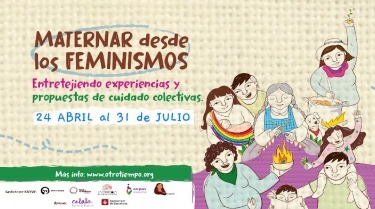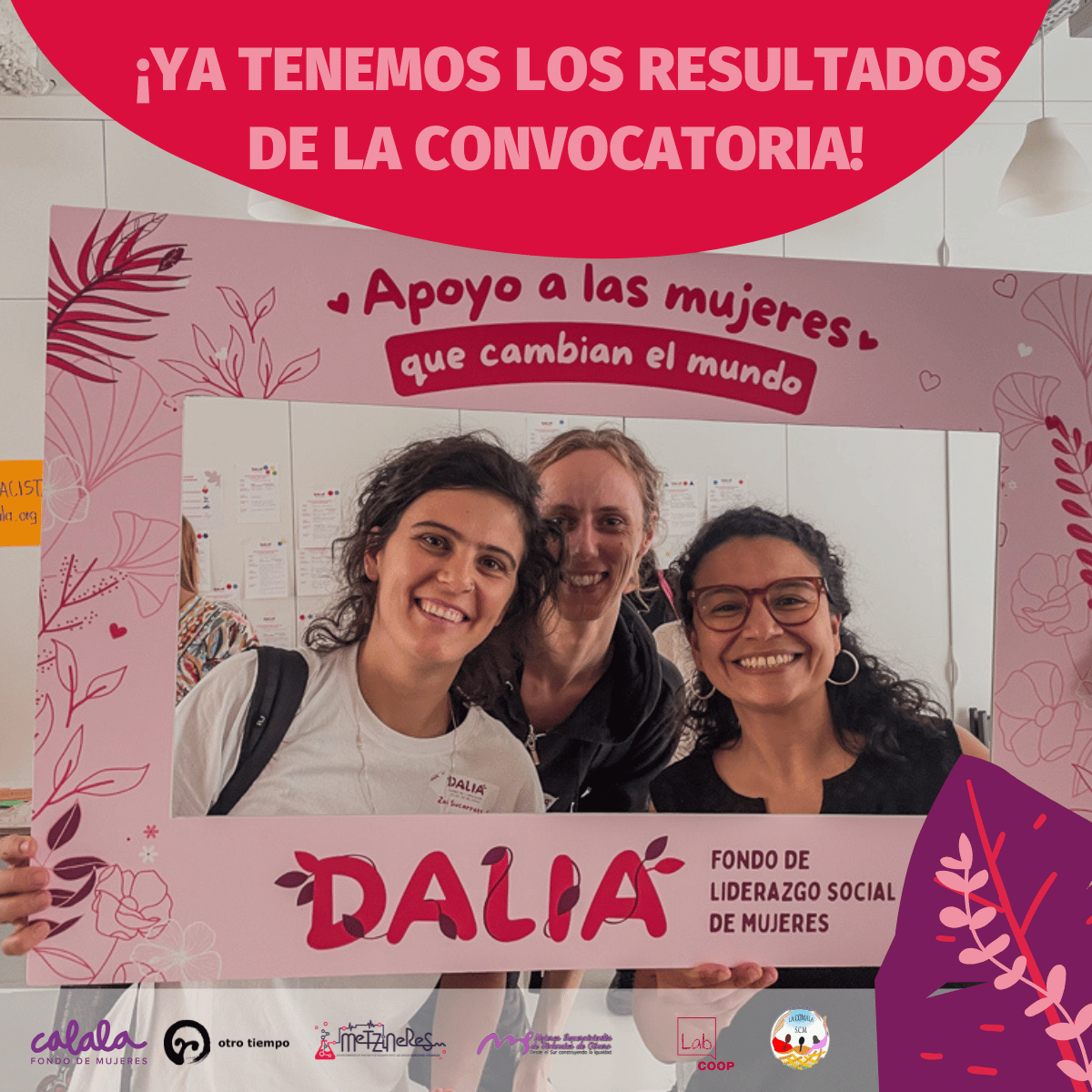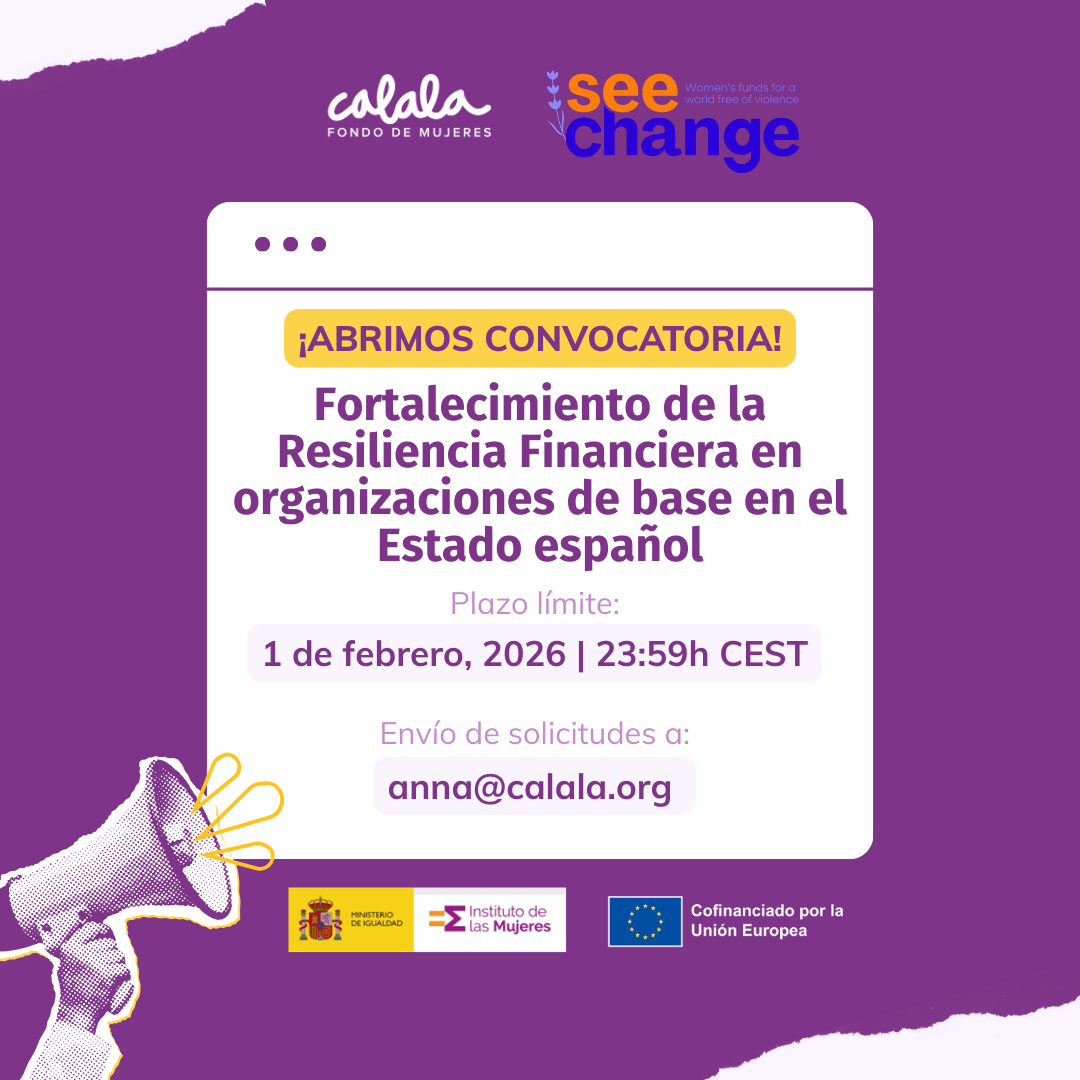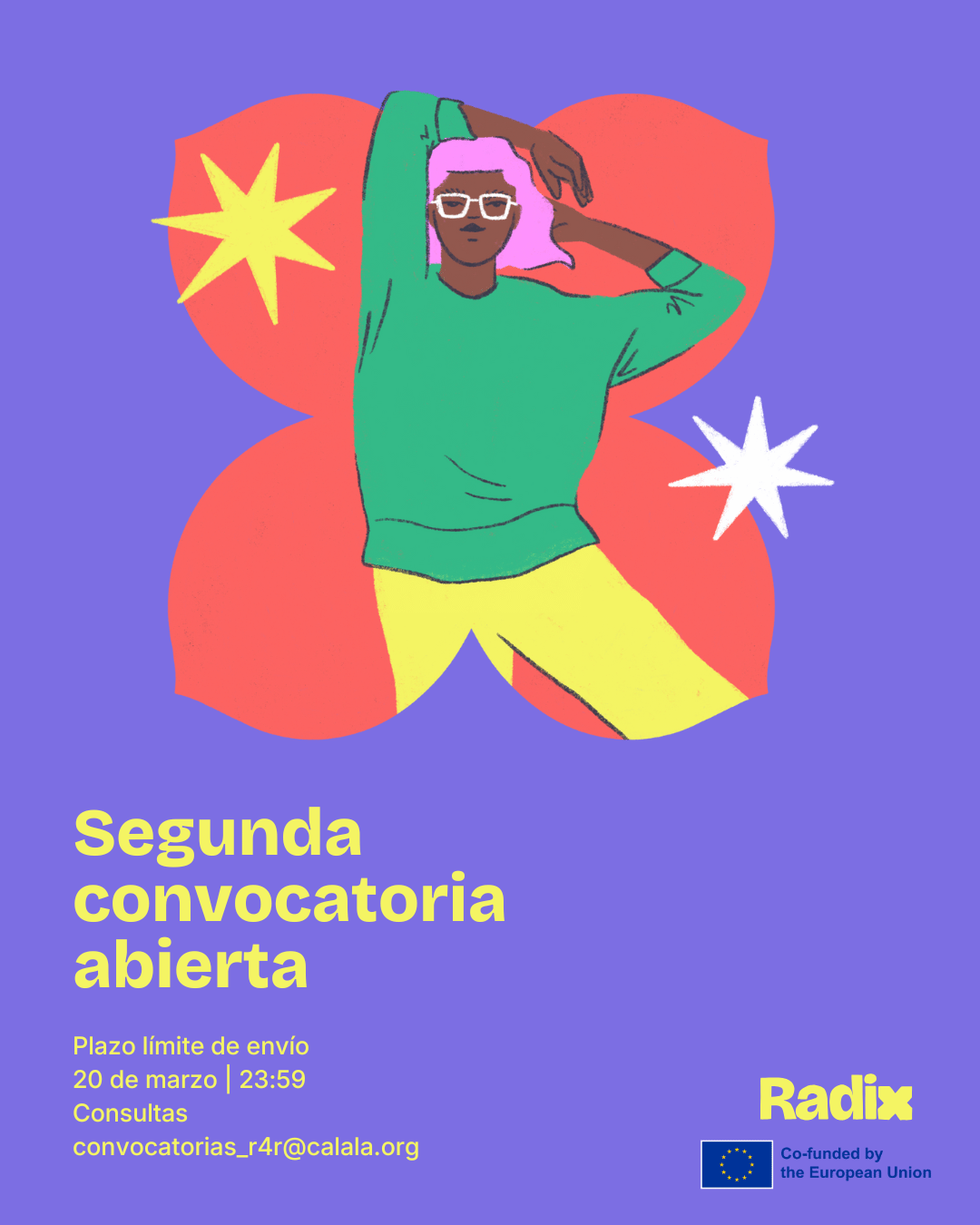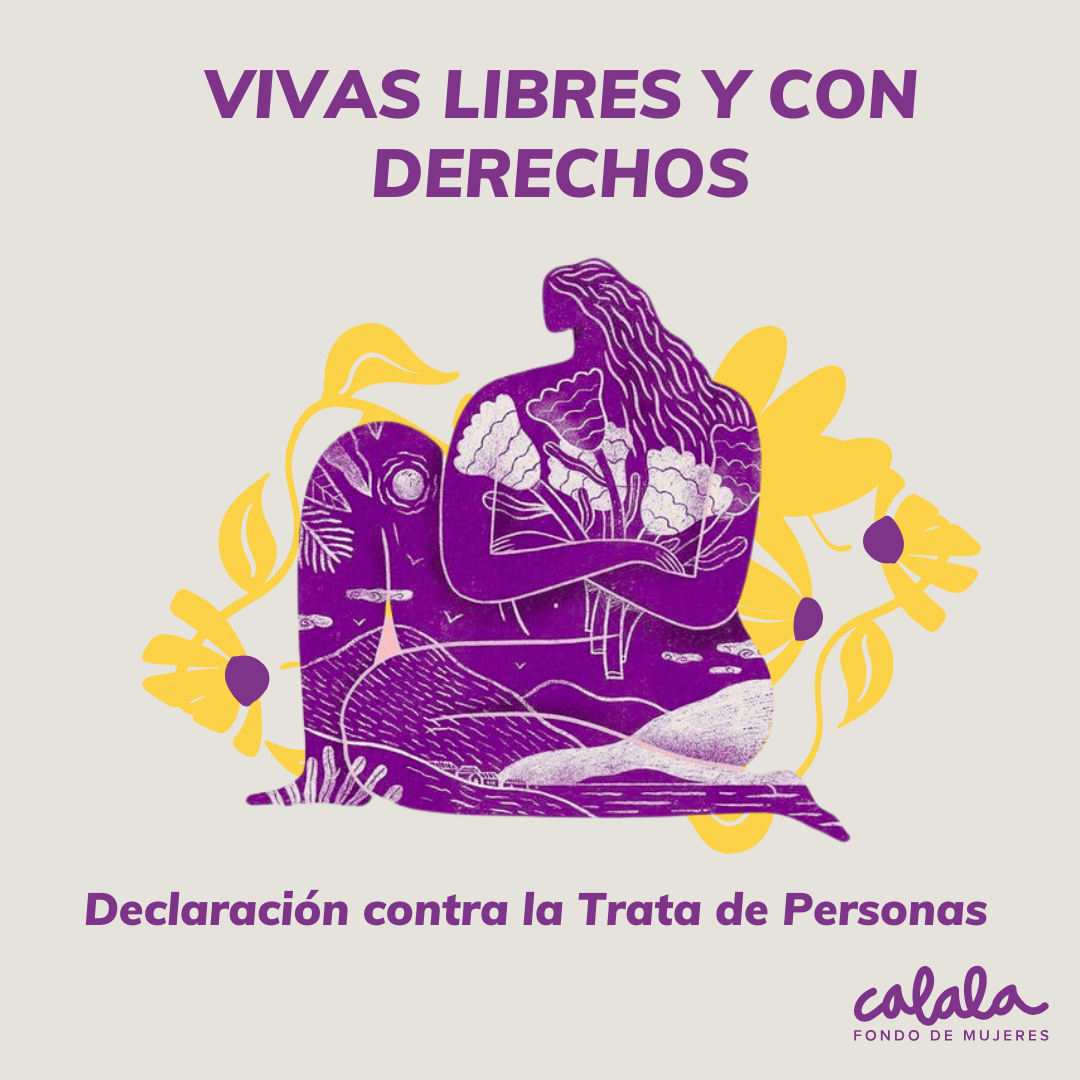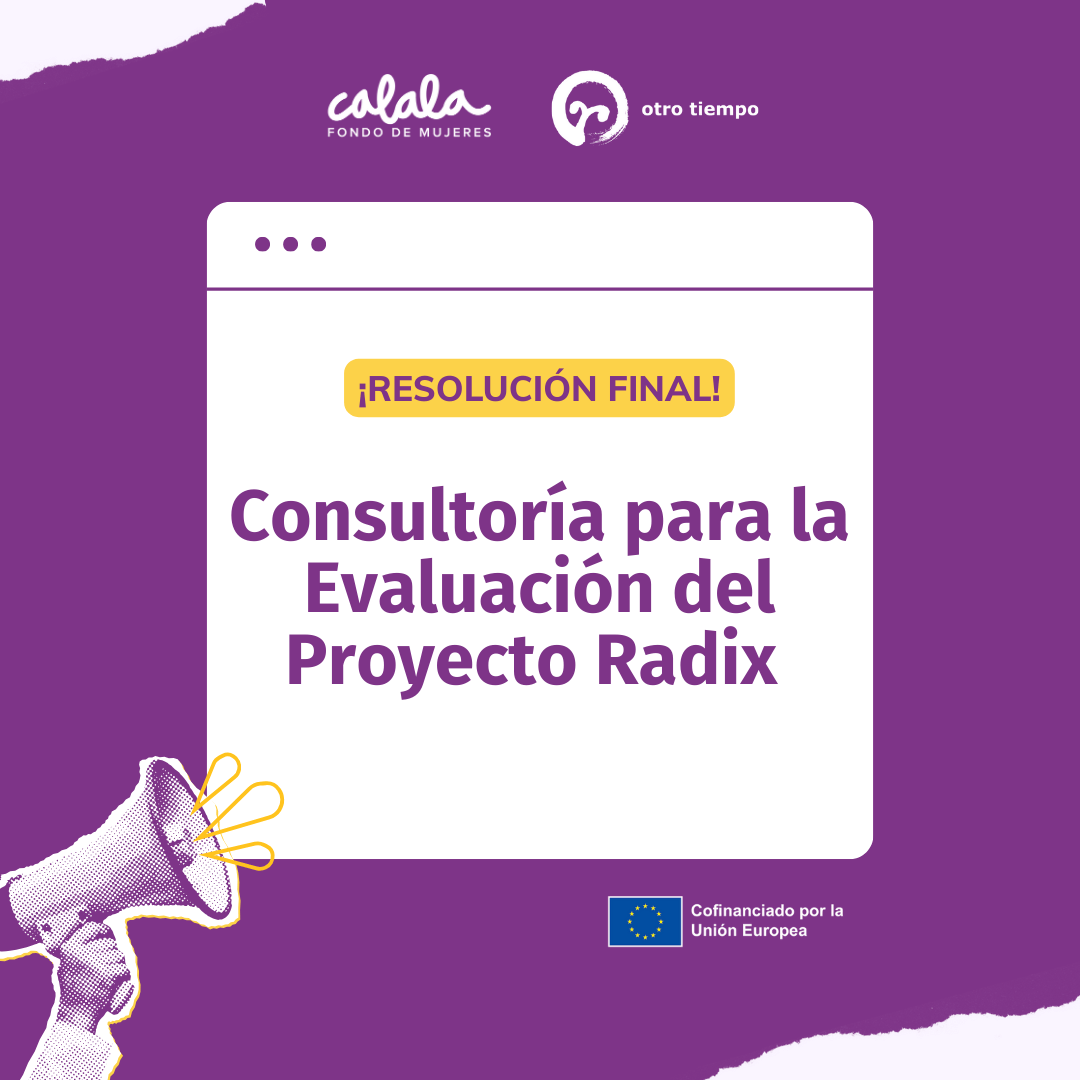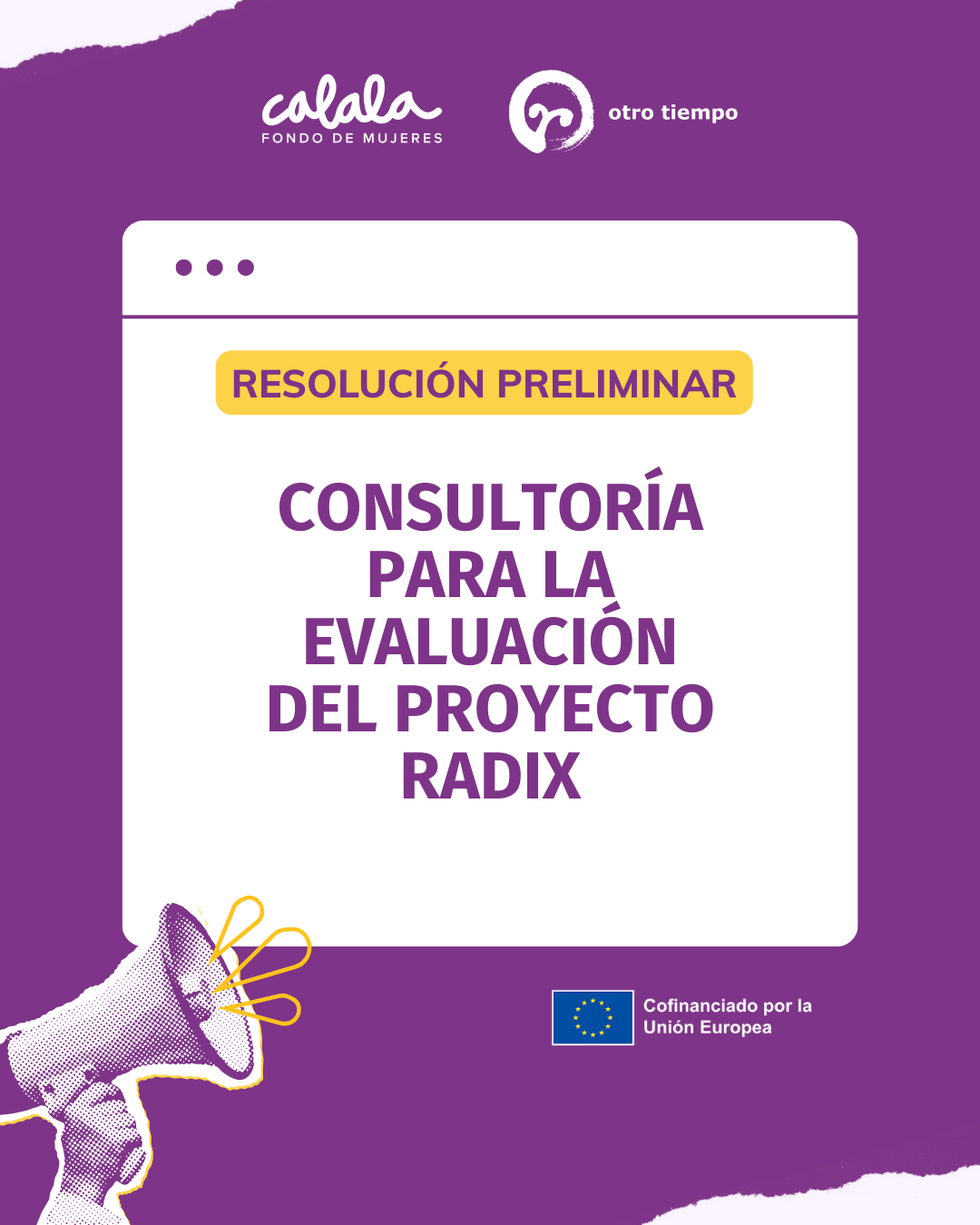Care sustains life
How does the desire to choose, or not to choose, to mother? How is this desire incarnated in our bodies-territories? In what ways do we care and how do we reinvent ourselves in motherhood through pleasure, creativity and the power of collectivising care? How do we want to propose a more sustainable, social and community-based motherhood?
The K'uyuy Network promoted this initiative, made up of seven online discussions and three embroidery sessions, with the aim of creating a space for the exchange of experiences, realities and political proposals on the forms of motherhood and care, from a feminist perspective. More than 170 women from Spain and Latin America registered and more than 60 participated. This great reception confirmed the need for women to share and reflect on the experiences surrounding the constructed concept of motherhood.
Debunking myths and discourses about motherhood
Throughout history, discourses and mandates have been forged about what it means to be a mother. Through the study of the physiology of conception, gestation, childbirth and postpartum, we realise that machismo has been shaping the experience of motherhood, rendering invisible or violating its most transcendent facets.
Throughout the sessions they questioned and dismantled social imaginaries about the “good mother”, the “working mother”, or the “super mother”.”; among others. They shared experiences of motherhood that are little named, or that are named out of shame, guilt and inhibition, as well as the violence experienced around them.
They also analysed public policies and legislation on motherhood and parenting in Mexico, Colombia and Spain. They pointed out how the structural inequalities surrounding care affect each body and society as a whole. With regard to these policies, they denounced the welfarist logic on which they are based for sustaining a social system focused on maximising economic profit at the expense of the care assigned to women throughout history and on an unpaid basis.
How to propose a more sustainable, social and community-based maternity ward?
- They reflected on how they are mothering to decide which aspects they wanted to strengthen and which they wanted to let go of. To do this, they worked on their childhood memories and how they were mothered.
- Key aspects of perinatal health were addressed such as caring, sexuality and spirituality
- They mapped different ways of caring collectively. From mothers' chats and movement workshops for adult caregivers, to outdoor schools run by mothers' groups during the pandemic and the purchase of acres of land for a joint ecological project among several families, the project has been a success.
- Lesbian motherhood made visible and the potential for creativity and dissidence they offer in comparison to “conventional” families; also acknowledging the multiple discriminations and violence they face
- Shared and strategised practices, including legal frameworks, that do not always guarantee the rights of children and LGTBQ+ groups.
- They found in embroidery another way to express their diverse ways of being and mothering., They created a safe and trusting space to reflect and express their emotions, needs and expectations.
The pandemic has underlined the importance of care
The issue of the sexual division of labour, care and co-responsibility; and how this affects our bodies, the way we live our lives and our position in the world., The role of women's rights is particularly important for enhancing social justice and women's wellbeing.
During the pandemic, there has been an increased awareness of the importance and burden of care. The possibility of holding this meeting virtually has made it possible to generate global perspectives based on experiences located in different territories, but which are crossed by common systems of oppression.
About the K'uyuy Network
K'uyuy (“braiding” in Quechua) is a transnational network that is being co-constructed in 2019 between women from Peru, Argentina, Mexico, Colombia and Spain who are part of feminist organisations. Other Time, La Caracola - Social Cooperative, MaquiWarmi, Mexico Care Network y Aupas. As its name suggests, its aim is to generate inter-learning and weaving from its diverse feminisms.
We are grateful for the support of Calala Fondo de Mujeres to carry out this initiative. We value their commitment to continue contributing to women's organisations in different parts of the world to promote transformative proposals.
Calala's support, together with the Barcelona City Council, was used to finance the facilitation of the sessions and the graphic material generated.
Illustration by Open Space (Peru)
